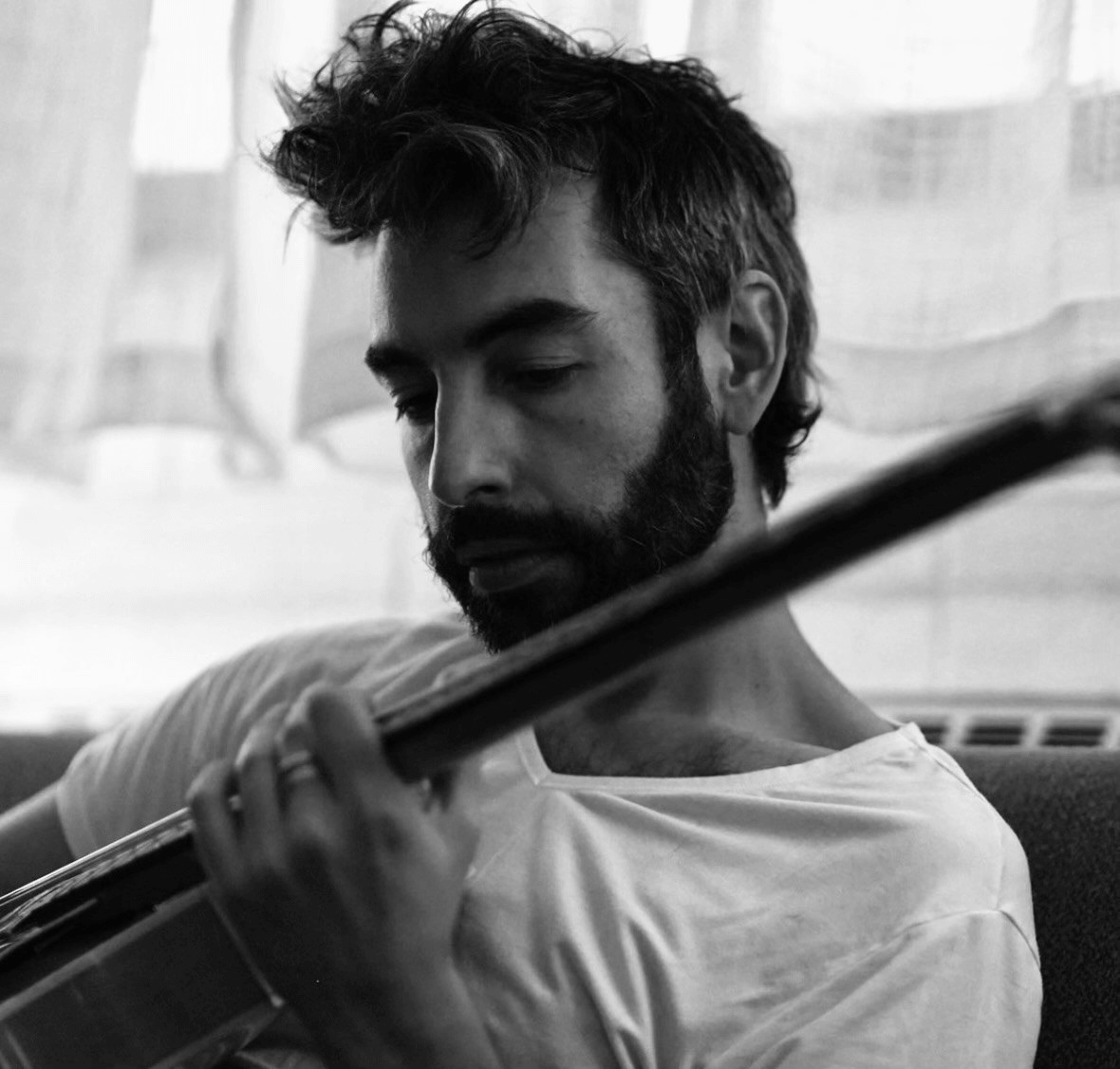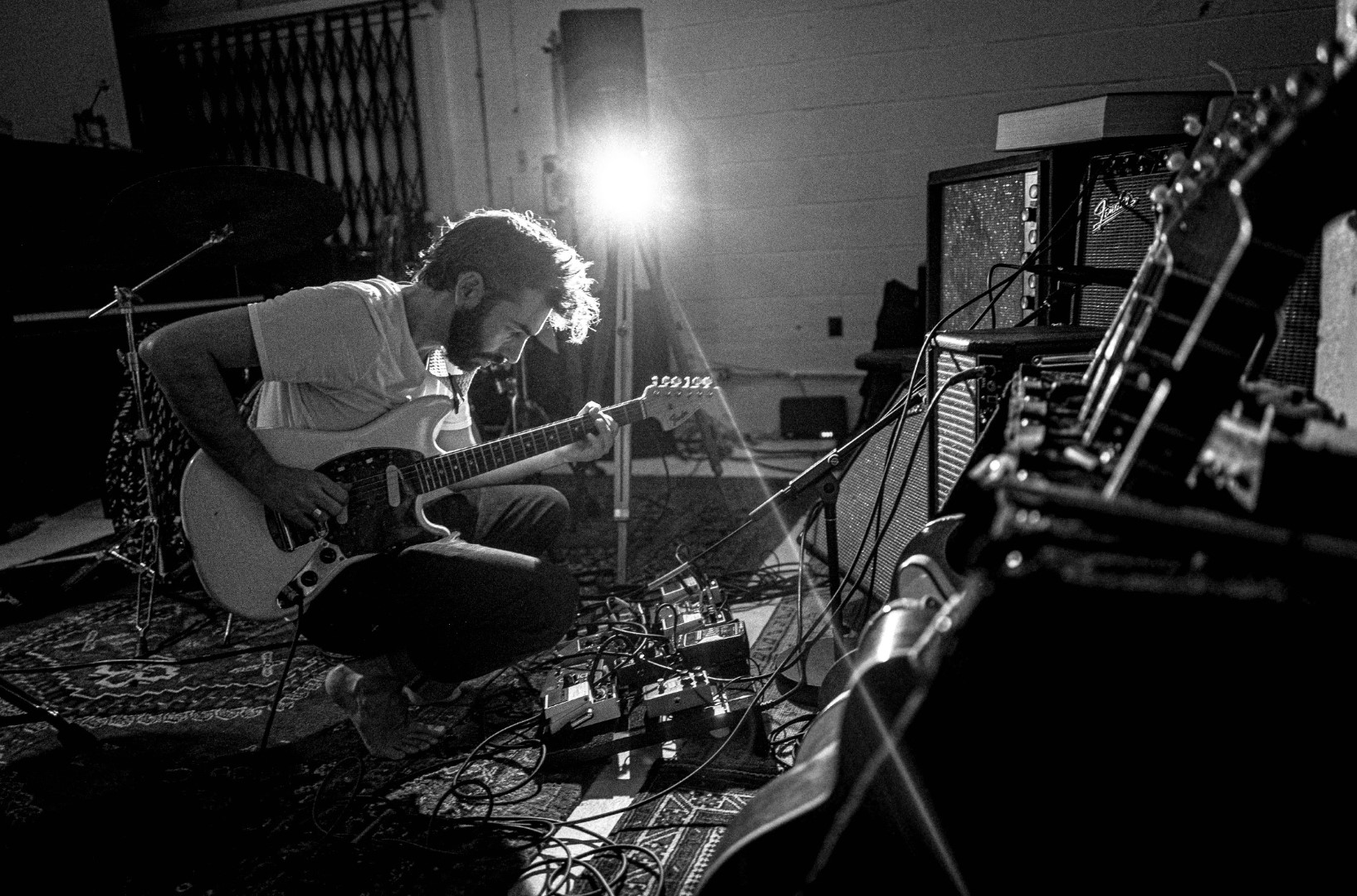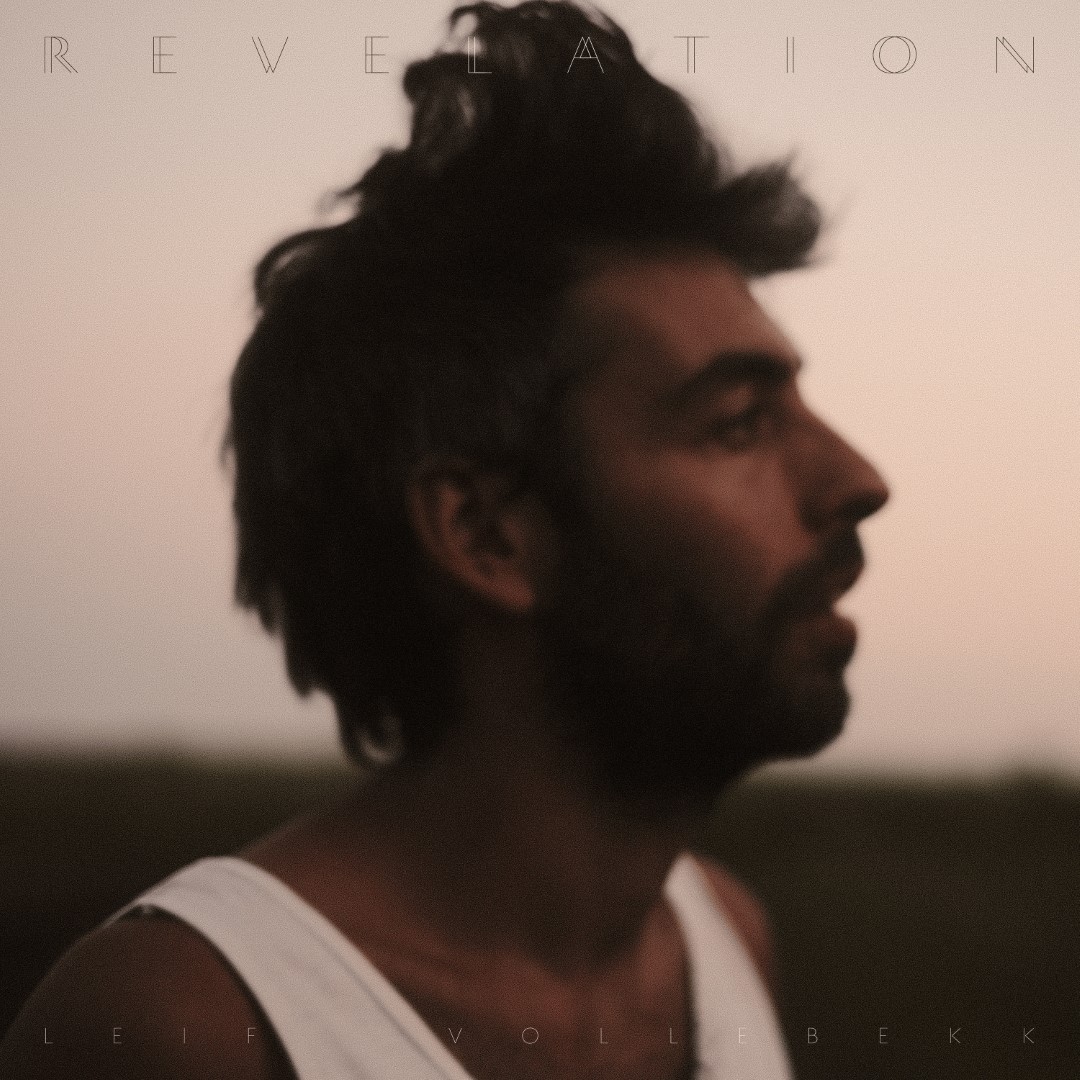Leif Vollebekk

Leif Vollebekk, a self-confessed ‘technical spiritualist’, is a Canadian singer-songwriter with an impressively esoteric writing style. It’s not often we conduct an interview that name-checks jazz greats alongside pioneering physicists and psychologists, touching on alchemic principles and discussing collaborations with musical luminaries along the way. But Leif’s music is far from fusty and academic. There’s a raw energy to his songs that turn his philosophical musings into something vivid and immediate. His latest album, Revelation, unites introspection with radiant, universally-felt emotion – with the sense of experiencing something ephemeral enhanced by the knowledge that (like a lot of Vollebakk’s work) the album was recorded as a live take.
Ahead of his European tour (starting this coming Monday 14th October), we spoke to Leif Vollebekk about his writing inspirations, recording process, and approach to performing live.
FAULT: There seems to be two schools of thought for how to write an album: one is that you surround yourself with lots of different people and influences and see what emerges from that, and the other that you sequester yourself, a bit like Coltrane did for A Love Supreme, and then come back from the mountaintop with your cosmos-inspired opus. It sounds like you took the latter approach with Revelation: was that planned or did it happen organically?
Leif Vollebekk: I can’t believe you just mentioned Coltrane. What a giant. What’s funny is that I always think about what Miles [Davis] did. He’d find musicians whose playing he deeply loved and he wouldn’t dictate what they played. His artistic voice was in his choice of the player. On this record, I sought out my favourite musicians, the ones I wouldn’t dare tell what to do, and just set them free on the tracks. Mike Lewis – I didn’t edit a note he sent. Neither Jim Keltner or Shahzad [Ismaily]. Or Angie [McMahon]. Cindy [Cashdollar]. They played whatever they wanted. That’s why I love this record – I hear voices other than my own.
But, yes, I suppose for the writing of the songs, most of the them came to me when I was completely isolated. I took advantage of the lockdown to stay home and write. I wrote for months. The result was that I had the most vivid dreams of my entire life. A lot of the songs came from these dreams.
There’s a really interesting ambivalence in your approach to recording in that you prefer to record live off the floor (and do it whenever possible), which comes across as more of an “off-the-cuff” approach, but you also take a really meticulous approach to production. Why do you like doing things that way? And have you always recorded like that, or is it something that’s changed over time?
It’s sort of has developed naturally over time. I noticed that what I loved about my favourite albums, after years of listening to them, was that there was always something new to discover. You don’t get that with digital samples or auto-tune. Your ear almost ignores a drum loop like it’s a fridge buzzing. You can never ignore Ringo’s drums: every hit is full of soul and his slight swing-feel.
But I also want things to feel right. Before recording, I spend a full day with Harris, my engineer, getting the piano just right, and selecting the microphones, the pre-amps… and of course we travel to the studio itself to see if it has the right piano and resonant ambience. On the second day, we just play music and we don’t fuss with the sounds too much. I just want to get a live take, where the vocal tells the story of the song and it allows me to visualize everything.
If we get a take, I then take it to my home studio and add overdubs that enhance the song. It’s sort of like painting on top of a photograph. You get this layered approach. It gives me time to figure out what the orchestra should do.
One of the big themes in Revelation seems to be alchemy: taking something commonplace and earthy and turning it into something transcendent. Is that an accurate assessment? And, if so, what influenced that train of thought?
I was simultaneously reading Carl Jung essays and reading this book about Isaac Newton and it turns out they were both fascinated with alchemy. Jung wrote about the purification of the soul that a true alchemist would need, whereas Newton was quite literally searching for the philosopher’s stone in his own backyard laboratory.
The thing about alchemy is that its fundamental principle is that anything earthly and commonplace is transcendent. “As above, so below”. I sometimes wonder if that millennia-old hermetic principle didn’t lead Newton to the theory of gravity…
Throughout your career, you’ve been very selective about the people with whom you choose to collaborate. Generally speaking, when you decide to work together with someone, do you look for people with a similar style and/or approach to yourself, or someone who can add something new and different?
I never really thought about it. Usually it’s just that they do something I can’t. And if I can’t do it, I just want to work with someone who is, firstly, uncompromising and precise in their work ethic but also highly sensitive and improvisational in their music. My new choreographer friend Emma Portner calls it being a ‘technical spiritualist’. I really like that. In a way, that’s what the famed alchemists were: very spiritual, but extremely technical.
Is it tough to relinquish creative control to enable those collaborations to happen?
Well, it goes back to the Miles Davis thing. My creative act was in selecting to work with them. Once we’re in the studio, I want them to feel free and express their true selves. I’ve never been disappointed with the result. For instance, I knew I wanted Mike Lewis on ‘Till I See You Again’. I told him to do whatever he wanted but that I heard saxophone coming in during certain sections. He sent me back three sax tracks and a bass synth. I didn’t edit any of it and that’s what you hear on the record. It was perfect to me.

Your upcoming European tour includes 5 UK shows, the last of which is a huge show: a headline gig at London’s Shepherd’s Bush Empire (18th October). It hasn’t happened yet, of course, but how does booking that show rank in terms of your career highlights so far?
I hadn’t really thought about that! Usually I feel that sort of thing once I’m on stage. It can be a complex emotion. I just want to feel connected to the music and see if we can stay loose enough to play a true version of the song. And I love it when people sing along in a venue like that. It feels like floating.
On the subject of ranking things: writing, recording, performing live – put those in order of preference?
Ah that’s interesting. I think about that a lot. It might be like asking a gardener which season they prefer. I love solitude but there’s a point where then I get the itch to travel for months on end and meet new people. I love the cyclical nature of it. There is something about the exact moment a song comes to you, though. Something out of nothing. But then again, that’s what recording is, too. And when an audience sings back to you the song you wrote in complete isolation… it’s like the harvest.
…I just realized I can’t answer your question…!

If you weren’t making music, what would you be doing?
I don’t think I’d be me. I might write. I like building small pieces of furniture. I love gardening. But I do that already.
What is your FAULT?
I feel like Leonard Cohen would have the perfect answer to this question. Something like, “I suppose I picked up where Adam and Eve left off.”